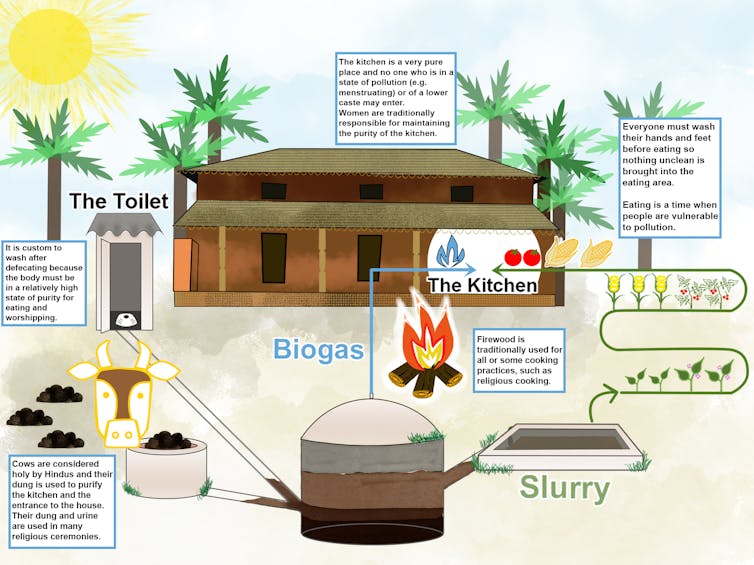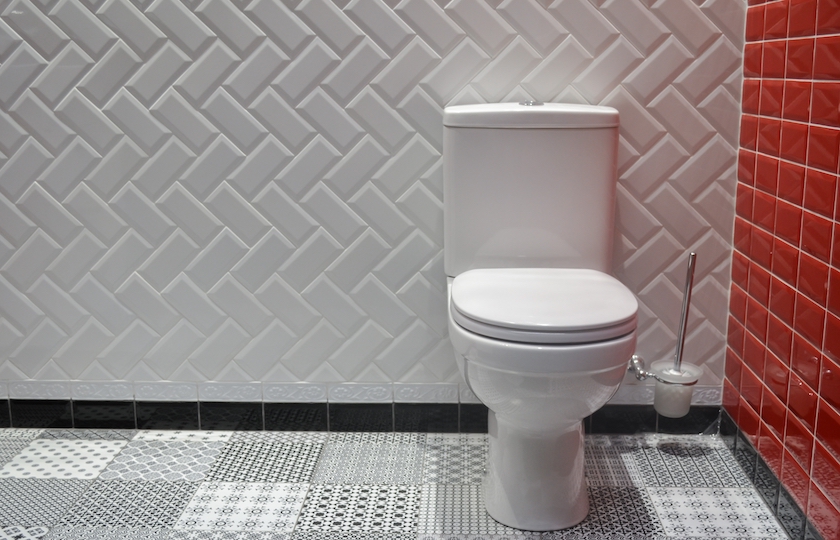When it comes to the humble toilet, most of us embrace a flush and forget approach that considers human excreta a waste product. But in a world experiencing climate change, this ignores the fact that organic waste can and must be recycled back into ecosystems. Despite their efficiency, toilets that recycle human waste are uncommon because most cultures consider them too unsavoury.
Clearly, toilets remain taboo. This has left many without toilets that can contain and treat waste safely or use large amounts of water to flush waste to energy-intensive, overloaded sewage networks and treatment works.
Many of the solutions to environmental challenges centre around new innovations and technologies. But what if it’s about more than that? What if it’s more to do with culture, behaviour, learned taboos and prejudices?
In our research, we wanted to look at the idea of taboos around the subject and find out what might change people’s minds about technology that recycles human waste. As people seek greener ways to live and reduce their impact on the natural environment, the way we think about what is waste and what has value has to change.
Greener toilet technologies
Those in authority often make assumptions about what people will or won’t accept – without properly exploring how some technologies could be embraced. There has always been community resistance to wind farms, for example. This resistance is often dismissed by developers when engagement with these communities can in fact lead to acceptance over time. Community ownership, where local people are involved and benefit from the financial returns, can also increase acceptance.
Toilets that recycle human waste could significantly cut down on the amount of sewage that is currently overloading treatment works and convert the waste to organic fertiliser and clean fuel biogas. This can replace or reduce the use of traditional wood fuels, which cause indoor air pollution and related illnesses.
Domestic biogas technology enables toilets to be connected to an anaerobic digester – airless units in which bacteria break down organic waste materials into clean renewable biogas. This technology is more common in low and middle-income countries but has the potential to be used more widely around the world.
Overcoming resistance
Toilet-linked anaerobic digesters (TLADs) have been met with a lot of resistance but there is surprisingly little information on how to allay fears and reservations or feelings of squeamishness about the technology.
In Nepal, despite cultural taboos that oppose the use of human waste products, there are reports of high numbers of TLADs. We wanted to see if we could learn something about how people came to accept them. Conducting in-depth interviews with rural householders we questioned them about cultural and religious objections around purity and pollution and how they were renegotiated to allow the adoption of TLADs.
Most importantly, we found that time was needed for social norms to change and for initial feelings of resistance to be overcome. In some instances, households only installed TLADs after the older generations, who were more opposed to the technology, had passed away.
Community leaders – or as we called them “risk takers” – played an important role in catalysing uptake of the anaerobic digester toilets. Risk-takers were people who installed TLADs even when the rest of the community did not approve. Some worried TLADs would make their home smell, or be unhygienic, but once they were able to see one at work, they realised that wasn’t the case.
Further benefits, such as free cooking fuel which dispensed with the need to find firewood, and the absence of smoke inside the home, plus better toilet design and fewer disposal issues convinced people of the technology’s usefulness. Demonstrations by neighbours and opportunities to learn how TLADs worked were successful in encouraging people to install their own.

Embracing the future
From our findings, it is clear that policymakers should not base decisions on the public’s initial perceptions about recycling toilets. They need to win people over by demonstrating the technologies and explaining the benefits to themselves and the environment. And they must allow some time for people to get used to the idea and get beyond their discomfort with practices they find challenging.
In the community we studied in Nepal, most people adopted TLADs when it was more socially acceptable to do so. In Singapore where drinking water from recycled sewage is widely accepted, authorities promoted positive media campaigns that communicated the science and environmental value, but more importantly, made consuming recycled water utterly normal. Policymakers should recognise the power of social norms and the positive as well as the negative role the media can play in communicating information.
This study can also teach us something about our own resistance towards recycling. In the UK, sewage and food waste is converted into biogas and agricultural fertiliser using anaerobic digestion on an industrial scale – but smaller scale biogas units remain futuristic. We need to go beyond initial reactions of reluctance and squeamishness to understand how change can happen when we have the proper information, when we can see demonstrable benefits and when we can contribute to improving the environment.
About the author: Natalie Boyd Williams is a PhD candidate Biological and Environmental Sciences, at the University of Stirling.
This article is republished from The Conversation under a Creative Commons license.
You may be interested in: Farmers are competing with solar companies for land use. But they can coexist



